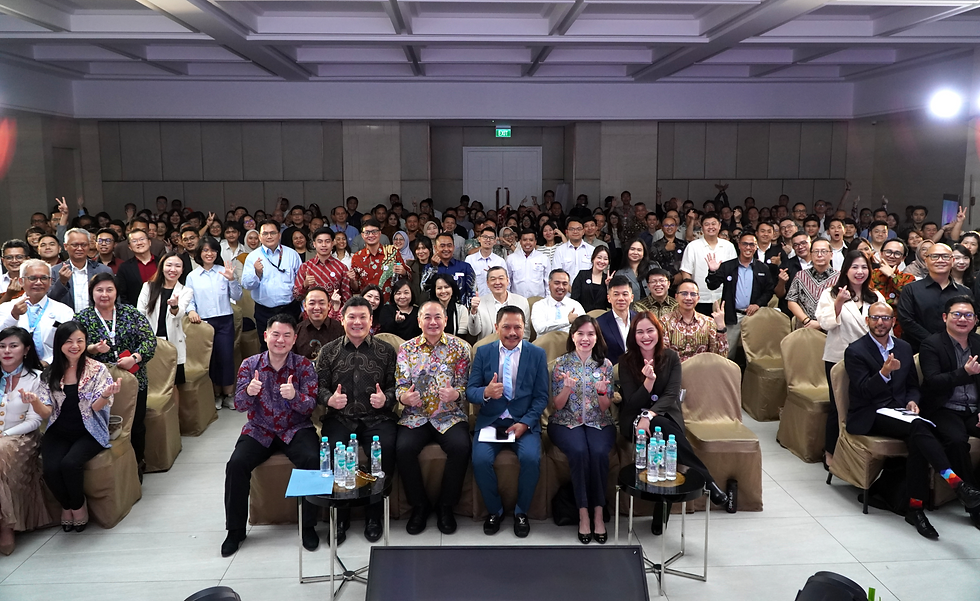The Metaverse: How It Could Change the Future of Work?
- TechConnect

- May 23, 2023
- 3 min read

The Metaverse, a virtual world that simulates the physical world, is becoming an increasingly popular and rapidly evolving technology. The effects of the pandemic — especially limitations on physical meetings and travel — are spurring a search by enterprises for more authentic, cohesive, and interactive remote and hybrid work experiences. The metaverse seems set to reshape the world of work in at least four major ways: new immersive forms of team collaboration; the emergence of new digital, AI-enabled colleagues; the acceleration of learning and skills acquisition through virtualization and gamified technologies; and the eventual rise of a metaverse economy with completely new enterprises and work roles. Its impact on the future of work is expected to be immense, as it will bring new jobs, business opportunities, and challenges for the workforce.
Here's how metaverse could change the future of work.
Like Being There: Teamwork and Collaboration in the Metaverse
The Metaverse promises to bring new levels of social connectivity, mobility and collaboration to the world of virtual work. Metaverse companies such as India-based NextMeet and UK-based startup PixelMax are focused on workplace solutions that reduce the fatigue of video conferencing and the social disconnection of remote work. Introducing an element of adventure, spontaneity and surprise, the Metaverse opens up new possibilities for reimagining the office and work environment. Your virtual office doesn't have to be a drab, uniform corporate environment downtown.
Beach resorts, ocean cruises, or even another world? This vision was inspired by Gather, an international virtual reality platform that enables employees and organizations to “build their own office.” gave a ration. These dream offices range from 'space station offices' with Earth views to 'pirate offices' with ocean views, captain's quarters and forward lounges for socializing. For the less adventurous, choose from options such as virtual rooftop parties and gatherings in the Zen garden.
Introducing Your Digital Colleague
Digital human technology presents a wide range of opportunities for employees and organizations. Colleagues in the Metaverse are not limited to avatars of real-world colleagues. Digital human technology presents a wide range of opportunities for employees and organizations. Digital humans are highly scalable, can be deployed in multiple locations simultaneously, without the need for coffee breaks. They can be used for more repetitive, tedious, or dangerous work within the metaverse. Human employees will be able to design and create their own personalized and customized digital colleagues to work with. However, digital humans are likely to suffer from the erosion of cultural and behavioral norms due to increased automation, the replacement of human labor by lower-skilled workers who generally have fewer opportunities to move into alternative roles, or the greater freedom of human digital humans. It also poses risks such as the possibility of Their interactions, actions can be transferred to their interactions in the real world.
Faster Learning in the Metaverse
The Metaverse has the potential to revolutionize training and skill development, dramatically reducing the time it takes to develop and acquire new skills. AI-powered digital coaches can help train employees and provide career advice. Any object, such as training manuals, machines, and products, can be made interactive in the metaverse to provide 3D views and step-by-step instructions. Virtual reality technology is already being used in many industries, especially in the medical field, to facilitate skill development. For example, surgical technology company Medivis uses Microsoft's HoloLens technology to manipulate 3D anatomical models to educate medical students. Virtual world learning can also use virtual agents. It's an AI-powered bot that can help learners when they get stuck, provide nudges, and provide challenges at scale.
New Roles in the Metaverse Economy
The internet didn’t just bring new ways of working: it brought a whole new digital economy — new enterprises, new jobs, and new roles. So too will the metaverse, as the immersive 3-D economy gathers momentum over the decade ahead. Looking further ahead, just as we talk about digital-native companies today, we are likely to see the emergence of metaverse-native enterprises, companies entirely conceived and developed within the virtual, 3-D world. And just as the internet has brought new roles that barely existed 20 years ago — such as digital marketing managers, social media advisors, and cyber-security professionals — so, too, will the metaverse likely bring a vast swathe of new roles that we can only imagine today: avatar conversation designers, “holoporting” travel agents to ease mobility across different virtual worlds, metaverse digital wealth management and asset managers, etc.
Source: HBR, Forbes, Science Time, Gettyimage





Comments